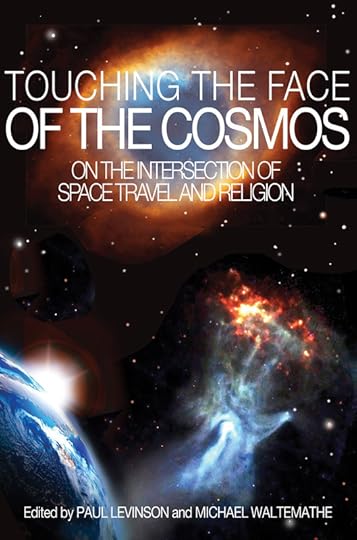Paul Levinson's Blog: Levinson at Large, page 89
October 17, 2021
Hightown 2.1: Switching Ups and Downs

Last year, Hightown was especially welcome, because, with the lockdown where we live, Hightown was the most were saw of the Cape. This year, we were back on the Cape a whole bunch of times, and Hightown is off to such a good start it's looking to be more welcome than ever.
Jackie is back and before the episode is over she's working full time for the real police. Ray remains out of the police, bartending, because some cop from his past testified against Ray at the hearing that could have put him back on the force. Frankie's out of prison, and Renee may be pregnant (not a hundred percent clear if Frankie is the father -- could be Ray, maybe?)
The most interesting new character is Jorge, Frankie's cousin, played by Luis Guzman (great to see him again). Osito (Atkins Estimond) is in prison, and always interesting. And here's the nub of the plot: three kids on Nauset Beach die of an overdose. The "Great White" drug they took was laced with something that killed them.
By the way, I don't get why these drugs are so often laced with something that kills their consumers. Don't the people who sell drugs want to keep their sources of money alive? As the characters in Hightown realize, it's clearly bad for business when the people who buy drugs die.
But it makes for excellent drama. It's good to see Monica Raymund and James Badge Dale back in their primary roles, and their screen personas in effect switching places. Jackie's up and Ray is down. But one of the charms of Hightown is that neither character is ever down and out. Welcome back Hightown -- see you again next week.
undSee also Hightown 1.1: Top-Notch Saltwater and Characters ... Hightown 1.2: Sludge and Sun ... Hightown 1.3: Dirty Laundry ... Hightown 1.4: Banging on the Hood ... Hightown 1.5-6: Turning Point and the Real True ... Hightown 1.7: Two Things ... Hightown 1.8: Up and Down and Up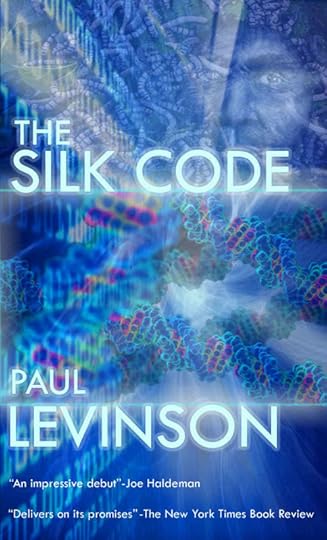
Paul Levinson's books ... Paul Levinson's music
American Rust 1.6: The Debts

First, Del's former partner from Pittsburgh, Chuck, calls upon Del to pay his debt -- in this case, murder some guy who committed a heinous crime years ago, and got away. The backstory: there's a "brotherhood" of Pittsburgh police who kill bad guys who've evaded the law, the killer cop apparently not being the cop who was investigating the crime, so the original investigating cop can have an alibi? (I'm not completely sure of that.) Anyway, unsurprisingly, Del can't pull the trigger. (But then Chuck goes in and does the deed himself, and then turns the gun on himself, and I'm not quite sure why Chuck killed himself, either. Because Chuck knew he could no longer rely on Del to back him up? My wife thinks it was to give Del a haunting memory as pay-back for Del not killing the bad guy. Maybe both explanations played a role in Chuck's ultimate motivation.)
Meanwhile, Billy almost pleads guilty out of loyalty to Isaac. There's some kind of debt in there, too. But, like Del, Billy can't bring himself to do that. He pleads not guilty at the last minute. He's off to a hardcore prison with bail denied, but he still has a chance of a good life.
Not many if any of the characters in American Rust seem to have much of a chance at that. Lee's husband Alejandro realizes that Lee has been sleeping with Billy, after Grace all but tells Alejandro so. No one's very nice in American Rust, either. Grace gets her just deserts soon after, though: someone (likely someone who doesn't like her unionizing) burns and blows up her car.
I haven't even mentioned what happened to Isaac. A grim but powerful episode indeed.
See also American Rust 1.1-2: Pennsylvania Noir ... American Rust 1.3: Highs and Lows of Life at the Same Time ... American Rust 1.4-5: Tightening Noose and Fraying Relationships
Paul Levinson's books ... Paul Levinson's music
Looking Back at “The Missing Orientation”: One Year Later
Abstract: Space tourism has received four literal liftoffs in the past year, and science fiction about space travel is flourishing, with new Star Trek seasons and Isaac Asimov’s Foundation series streaming this Fall. All of these both kindle and express our sense of wonder, but the pathways to space are still expensive and dangerous, and they need to be connected to the taproots of our sense of wonder In religion and science fiction, so those pathways stay open and strong.
Key words: space tourism, science fiction, religion, sense of wonder, Star Trek, Foundation, Richard Branson, Jeff Bezos, Elon Musk, Joe Biden, William Shatner
======
It’s been nearly a year since I wrote “The Missing Orientation” (Levinson, 2021), and its call for enlisting our religious or spiritual sense of wonder about our place in the universe in our continuing efforts to expand our existence off this planet and out into space.
Billionaires Richard Branson (Chang, 2021) and Jeff Bezos (Rincon, 2021) touched space in July, albeit briefly, kissing the cosmos in their spaceships and laying the equivalent of groundwork for tourism off this planet. William Shatner aka Star Trek’s Captain Kirk him went up to space in Jeff Bezos’s Blue Origin in October (Pereira, 2021; Roulette, 2021). And Elon Musk’s Space X literally brought four civilian tourists into space for three days in September (Duffy, 2021). But Branson’s Virgin Galactic apparently had a problematic re-entry (Wattles, 2021), showing how dangerous space flight still is, and seats on the Space X’s Inspiration 4 are estimated as costing some $50 million per seat, putting that flight beyond the reach of most tourists (Kelvey, 2021).
Meanwhile, the sense of wonder intrinsic in science fiction has been firing on all cylinders. Paramount+ will be streaming new seasons of Star Trek: Discovery and Picard in the months ahead, and Isaac Asimov’s Foundation series at long last found expression on the screen when Apple TV+ began streaming Foundation in September. As I mentioned in “The Missing Orientation,” it was the original Star Trek series in the 1960s that ignited my interest in space travel, and the Foundation trilogy got me thinking about humanity in galactic terms when I was a boy in the 1950s.
Star Trek always emphasized the inherently international nature of space travel and exploration. In 2021 and the years ahead, China is promising a robust space program (SCMP Editorial, 2021). And U. S. President Joe Biden’s 2022 budget request for NASA is the “2nd-best budget proposal for the space agency in 25 years,” supporting projects on the Moon, Mars, and Jupiter’s moon Europa (Dreier, 2021).
But, as the vacuum in the American space program for decades after humans walked on the Moon in 1969 and a few years after so vividly shows, budgeting for space exploration, especially in democracies, is unreliable. And space tourism needs to drastically lower its price before it becomes a part of our lives. Tourism is rooted in our sense of wonder, and as long as that sense remains strong, and connected to space via the ancient and more modern channels of religion and science fiction, our path to space will remain open and expand.
References
Chang, Kenneth (2021) “A Ride to Space on Virgin Galactic? That’ll Be $450,000, Please,” The New York Times, 5 August https://www.nytimes.com/2021/08/05/sc...
Dreier, Casey (2021) “Biden's 2022 NASA Budget Says Yes to Pretty Much Everything,” The Planetary Society, 4 June https://www.planetary.org/articles/na...
Duffy, Kate (2021) “SpaceX's all-civilian crew chatted with Elon Musk and shared photos of Earth from the spaceship's glass-dome bathroom on their first full day in space,” Insider, 17 September. https://www.businessinsider.com/space...
Kelvey, Jon (2021) “Inspiration4: How Much Does a Ticket to Space Cost?” 16 September. Inverse. https://www.inverse.com/science/inspi...
Levinson, Paul (2021) “The Missing Orientation,” Religions. 2021;12(1):16. https://www.mdpi.com/2077-1444/12/1/1...
Pereira, Ivan (2021) “How William Shatner's Blue Origin space trip can reignite passion for science,” ABC News, 12 October. https://abcnews.go.com/Entertainment/...
Rincon, Paul (2021) “Jeff Bezos launches to space aboard New Shepard rocket ship,” BBC News, 20 July https://www.bbc.com/news/science-envi...
Roulette, Joey (2021) “In a Blue Origin Rocket, William Shatner Finally Goes to Space,” The New York Times, 13 October. https://www.nytimes.com/2021/10/13/sc...
SCMP Editorial (2021) “The sky is the limit for the emerging Chinese space industry,” South China Morning Post, 24 July https://www.scmp.com/comment/opinion/...
Wattles, Jackie (2021) “FAA grounds Virgin Galactic, says it's investigating problems with Richard Branson's flight to edge of space,” CNN Business, 2 September. https://www.cnn.com/2021/09/02/tech/r...
Paul Levinson's books ... Paul Levinson's music
October 16, 2021
Spoiler-Free Review for You 3

Here's my specific-spoiler-free review of the third season of You, just up on Netflix yesterday, and superb:
1. Joe and Love make an excellent killer couple, literally, with true love for their baby.
2. Joe continues his literary panache, working in a library.
3. There are a plethora of people in the suburbs who could be Joe's undoing, or, at very least, many more than usual.
4. The dialogue and ambience are hipper than ever. At some point, someone remarks that "no one uses Tumblr" any more. (Well, I still use it, but I'm not that hipt.) Love's mother also says she's taking a Lyft (not an Uber).
5. You won't be able to predict the ending, unless you make a very lucky guess.
6. I don't think I said this in my reviews of You 1 and You 2, but Joe's self-narration reminds me a lot of Dexter's. Speaking of which, I'm very glad that series is coming back on Showtime on November 7.
7. As in the first two seasons, the acting in You 3 was outstanding. Penn Badgley is great again as Joe, and Victoria Pedretti perfect as Love. I also especially liked Tati Gabrielle as Marienne and Dylan Arnold as Theo. All of these performances ranged from charming to frightened to in some cases frightening, which in effect is the essence of this series.
Netflix has already commissioned a fourth season -- I'll see back here shortly after it starts streaming. See You then.
See also: You: Review from an Unconflicted Fan ... You 2: Killer Charm

October 15, 2021
Podcast Review of Foundation 1.5
Welcome to Light On Light Through, Episode 197, in which I review the fifth episode of Foundation, just up today on Apple TV+
earlier podcasts about Foundation: October 8, 2021: Review of Foundation 1.4 ... October 1, 2021: Review of Foundation 1.3 ... September 24, 2021: Review of Foundation 1.1-2 .... July 17, 2021: Thinking about Asimov's Foundation Series on AppleTV+ ... March 12, 2009: Asimov's Foundation and Herbert's Dune Trilogies as Sources of Philosophy written blog post review of Foundation 1.5 postcard from Isaac Asimov to me in 1979 about the Foundation trilogyPaul Levinson's books ... Paul Levinson's music
October 14, 2021
Foundation 1.5: What We Learn in that Final Scene

I knew it! How many times have you read here in my reviews of television series and movies, how many times have you heard me say this on panels at science fiction and other popular culture conventions , that if you don't see a character's head literally blown to pieces, well, he or she may still be alive. I said this about Tony Almeida on 24 and I was right. I'm still saying this about Tony Soprano -- that he wasn't killed, indeed, wasn't even shot -- and I still think I'm right.
[Big spoilers ahead ... ]
And I thought it after the end of episode 1.2 of Foundation. But I was too upset to say it. I didn't want to cheapen that likely loss of such magnitude by making my off-made point. And the murder did "amply demonstrate the unpredictability of individual behavior" -- that is, Raych's -- that is one of the cornerstones of psychohistory, so I said that, and let it go at that.
But now, after just watching episode 1.5, I can say that, unlike in the past two episodes (1.3 and 1.4), my favorite part was not the triple Cleon clones. And not because the clones weren't in episode 1.5 at all. It's because my favorite part of 1.5 was at the very end, where it looks like Hari maybe wasn't killed, and survived Raych's stabbing.
Now, typically for this riveting, tempting series, we can't be sure of that, either. Only that apparently Hari was alive after Raych and Gaal left the room where he had been stabbed. It's not 100% clear to me what Gaal saw in that last scene. As far as I can tell, not Hari beamed through time to where Gaal was, so maybe she can save him -- we've seen no other evidence of Star Trek-like beaming in the Foundation series, right? So what Gaal and we saw at the end of 1.5 was presumably a holographic recording of Hari alive after the stabbing.
Where is he now, i.e., at the time that Gaal is seeing this? Well, she realizes she's on her way to Helicon, Hari's home planet. She's very worried that she'll be apprehended and killed there, because the people on Helicon know that she murdered Hari. But if Hari wasn't murdered, Gaal will be ok there. In fact, I'm looking forward to Hari greeting her in the flesh in the next episode.
Which I look forward to watching, and reviewing here. The rest of the galaxy, certainly Cleon's Clones, think Raych murdered Hari. It's good to know that likely we know better.
See also Foundation 1.1-2: Mathematician, Man of the People, and Cleon's Clones ... Foundation 1.3: Clonal Science Fiction, Hari Seldon as V. I. Lenin ... Foundation 1.4: Slow Hand, Long Half-Life, Flipped Coin
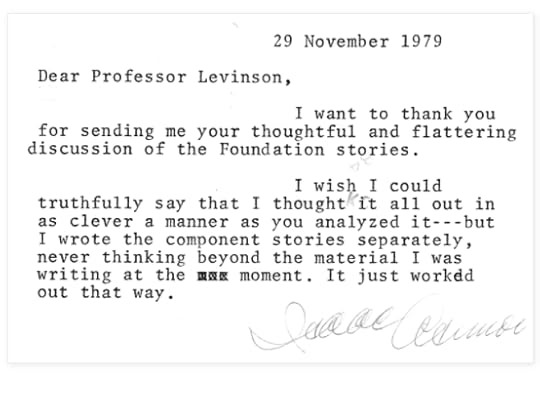
October 12, 2021
La Brea 1.3: Descending into the Maelstrom
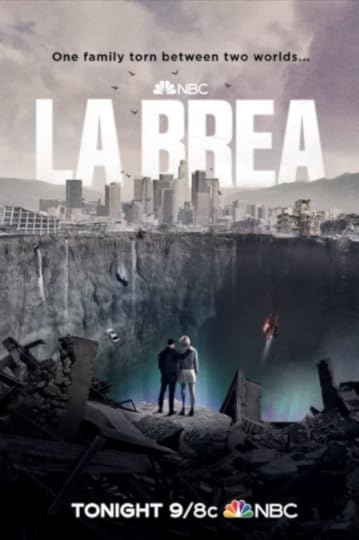
A good solid third episode of La Brea on NBC tonight, in which Levi, an accomplished pilot and old friend of Gavin, with a real relationship to the family, flies into the sinkhole. The plane is engulfed in flames and [spoilers ahead ...]
Levi survives! This in itself changes everything. The people stranded in 10,000 BC have a way out. The only problem is how can the people in their future and our present know about this -- know that Levi survived and therefore there's a way out?
Gavin's visions, or course. But the question remains: will Dr. Sophia Nathan believe him? Well, she already believes in Gavin's visions enough to take him and them seriously. But will she risk another mission and another pilot sent to the past? My prediction, she might if the pilot is Gavin. And if she doesn't, Gavin will somehow get a hold of a plane.
Meanwhile, the most interesting thing that happened in the past is discovering the dead guy with a modern shirt or sweatshirt in the cave. This flat-out means that our cast of characters were not the first to be sucked into the sinkhole. Or, if they are, maybe there's another sinkhole not too far away. The shadowy figure we saw in an earlier episode is not an extra-terrestrial, but someone in or close to our present who traveled to the past.
The past itself, by the way, continues to be fun. I especially liked the giant sloth at the beginning of the episode -- it did take the candy bar and the food that the cop in the past assembled, but it didn't cause any big harm, and thanks to Eve everyone enjoyed some mushrooms known as chicken of the forest for dinner. Of course mushrooms have none of the protein of chicken, but they're probably a lot better for you then a candy bar.
Anyway, I would have put the sloth in the title of this review, but it didn't really work with the Poe reference. I'll keep it in mind, though, for future reviews, and I'll be back with one next week,
See also La Brea 1.1: Pros and Cons of Falling Into the Past ... La Brea 1.2: Deepening Horizons

Paul Levinson's books ... Paul Levinson's music
The Guilty: Scalding Tour de Force
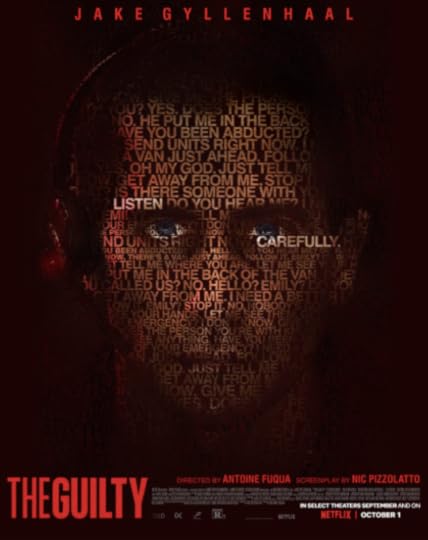
My wife and I just The Guilty, a scalding tour de force of a movie on Netflix. I'm not going to give away much if any of the plot, definitely not the crucial parts. I will say that nothing quite seems like it is. And you've got to stay with this movie til the end.
Here's what I can tell you: almost all of the movie occurs on the phone. Other than Jake Gyllenhaal, who puts in what may be the performance of his career as Officer Joe Baylor, on 911 phone duty because he did something wrong in the street on his job, we see just a few other minor characters. Otherwise, everyone else, including some very major characters, are voices on the phone. This easily could have been a powerhouse play -- a play for the ages. Just like the movie (based, according to IMDb, on a Danish movie).
Joe fields a variety of nuisance and crackpot calls. And then gets a call from Emily, voiced by Riley Keough (The Girlfriend Experience and more). We also get to hear from Abby (Emily's daughter), Henry (Emily's husband, voiced by Peter Sarsgaard), Rick (Joe's partner, voiced by Eli Goree who played Cassius Clay in One Night in Miami), Bill (Joe's boss, voiced by Ethan Hawke) and other notables. But it's all pulled together -- and apart -- by Gyllenhaal's stunning performance, vaunting from exhausted sarcastic to high voltage shatter for a range of reasons.
Kudos to Antoine Fuqua for directing and Nic Pizzolatto for writing this unforettable package of narrative, Gyllenhaal on the screen, and other star power by voice. I'm no particular friend of police on the edge, given what has been happening for multiple decades and is finally getting some long due attention. But, well, see this movie and add it into your personal equation.
Podcast Review of Squid Game
Welcome to Light On Light Through, Episode 196, in which I review the Netflix runaway smash hit Squid Game.
Written blog post review of Squid Game
Paul Levinson's books ... Paul Levinson's music
Squid Game: Riveting Action and Profound Lessons
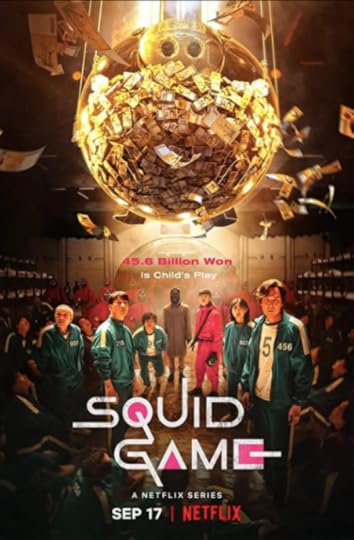
Well, I binged the nine episodes of Squid Game the runaway smash hit on Netflix the past few nights, and I really liked it. A lot more than Hunger Games, which the Korean Squid Games has been frequently compared to, though I'll admit none of the Hunger Games movies were ever high up on my favorites list.
What Squid Game has going for it is an at once subtle and brutal take on human nature. People from all walks life sign up to play these games, even though this could and will for just about all of them cost these people their lives. Tens of billions of dollars is a powerful inducement even if you're not desperately poor, as most of the contestants are. Gender, socio-economic class, age, attitude all mean little when so much is at stake, when the reward could make you an instant Elon Musk or Jeff Bezos.
[spoilers ahead ...]
The lure even has appeal to an old man dying of cancer. Amazingly, a combination of his wits and the kindness of others (mainly Gi-hun, except when his own life is jaggedly on the line) get Il-nam pretty far in the game. Of course, we learn at the very end of the narrative that he is in fact the creator and director of the game, and, realizing that participation is a more satisfying experience than observing, he decides to masquerade as a player. This was an excellent twist, and in no way dilutes the lessons that we learned about the extent and limits of Gi-hun's kindness.
Gi-hun, the lead character, himself evolves during and most profoundly after the games, when he walks away with 45 billion dollars in his account. The money restores and strengthens his kindness, and empowers him ultimately to seek to confront the evil that is the idea and the practice of the games. With any luck, we'll see how this plays out in a second season.
Other characters I especially liked are Sang-woo (the intellect), Sae-byeck (the pickpocket), and Ali (the Pakistani immigrant). All their beliefs are put to the test, and you won't able to predict the results, meaning the series always commands your attention. Creds to Lee Jung-jae (as Gi-hun), Oh Yeong-su (as Il-nam), Park Hae-soo (Sang-woo), Jung Hoyeon (as Sae-byeck), and Anupam Tripathi (as Ali), and indeed all the actors gave fine performances.
It's rare for a story to have such riveting life-and-death action as well as profound lessons about human nature. Squid Game has both, and I look forward to the sequel.
Levinson at Large
- Paul Levinson's profile
- 340 followers


